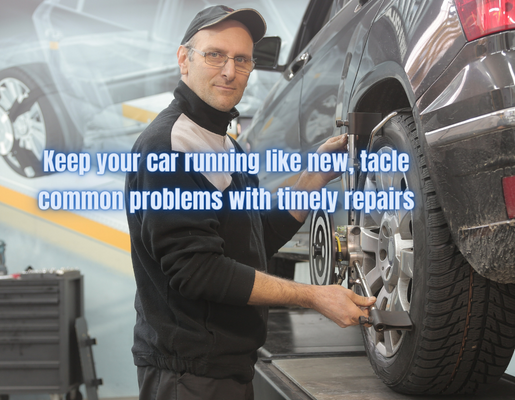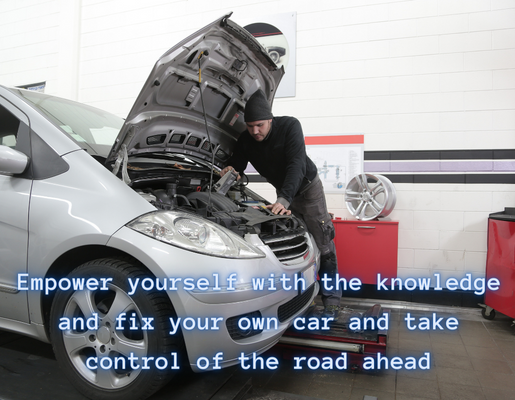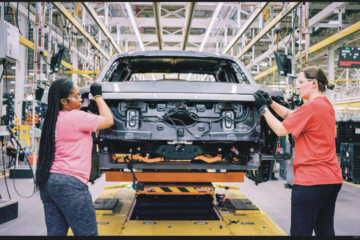As a car owner, it is crucial to understand the fundamentals of automotive maintenance. This knowledge can save you both time and money in the long run, not to mention that it ensures that your vehicle is always in good working condition. In this article, we will discuss common car problems, DIY repairs, selecting a car repair shop, preventative car maintenance, and the cost of car repairs.
DIY Car Repair article covers:
- Definition and importance of car repair
- Common car problems and tips for diagnosing and fixing them
- Basic DIY car repairs, safety precautions, and tips for preventive maintenance
Automotive maintenance is the process of maintaining and repairing any issues that may arise with a vehicle. This can include anything from replacing a flat tire to repairing a damaged engine. The goal of automotive maintenance is to ensure that your vehicle is safe to operate and prevent more serious problems from developing. Regular maintenance can also extend the lifespan of your vehicle, saving you money in the long run.
Read: Fuel-Efficient Driving Tips

Common Car Problems
Some common car problems include, but are not limited to, flat tires, dead batteries, and engine trouble. Flat tires can be caused by various factors, such as punctures, leaks, or worn-out tires. Dead batteries can result from a variety of factors, such as leaving your lights on, having a faulty alternator, or using an old battery. Engine trouble can be caused by several factors, such as overheating, a lack of oil, or a malfunctioning part.
If you encounter any of these issues, it is vital to diagnose and fix them as soon as possible. You might be able to repair a flat tyre yourself or get a new tyre altogether. You can jump-start your automobile or change the battery if it has a dead battery. It is preferable to take your car to a professional for an accurate diagnosis and repair of engine problems.

DIY Car Repairs
Several basic car repairs can be done at home with the right tools and knowledge. However, it is essential to take safety precautions and know your limits. A few typical do-it-yourself car repairs involve swapping out brake pads, performing an oil change, and installing spark plugs.
Replacing brake pads involves removing the wheel and brake caliper, then replacing the worn pads with new ones. Changing oil involves draining the old oil, replacing the oil filter, and adding new oil to the engine. Replacing spark plugs involves removing the old plugs and replacing them with new ones.
Read: The Top-Rated Cars for Safety: A Comprehensive Guide
It is crucial to follow proper procedures when performing these repairs and know when to seek professional help. If you are unsure about any aspect of the repair, it is best to take your vehicle to a mechanic.
Insider Tip: If you are new to car repairs, consider taking a basic car repair course at your local community college or vocational school. These courses can provide you with the skills and confidence to tackle basic repairs at home.

Choosing a Car Repair Shop
When selecting a car repair shop, it is vital to choose a reputable and trustworthy shop. You can do this by checking their credentials, reading reviews, and comparing prices. Look for a shop that specializes in your type of vehicle, and make sure they have experience working on your make and model.
Check the shop’s credentials by verifying their license and certifications. Take a look at the feedback provided by customers to get an idea of their experiences. Compare prices from multiple shops to ensure you are getting a fair price for the services you need.

Preventative Car Maintenance
Regular car maintenance is essential for preventing future problems and extending the lifespan of your vehicle. Some important maintenance tasks include oil changes, tire rotations, and tune-ups.
Every 3,000 to 5,000 miles, it is recommended to have your oil changed. This will ensure that your engine is well oiled and operating seamlessly. Tire rotations should be done every 5,000 to 7,000 miles to ensure even wear and extend the lifespan of your tires. To ensure that your engine is running at peak performance, it is recommended to have tune-ups performed every 30,000 to 60,000 miles.
In addition to these tasks, it is crucial to regularly check your vehicle’s fluids, brakes, and other components to ensure that everything is in good working condition.
Cost of Car Repairs
The cost of car repairs can vary depending on the type of repair and the severity of the issue. There are actually methods to cut costs on automobile repairs. Shopping around for the best prices is one way to save money, as is performing basic repairs yourself. However, it is essential to know your limits and seek professional help when necessary.
| Pros | Cons |
| Saves money | Lack of expertise can cause more harm than good |
| Provides a sense of accomplishment | Risk of injury |
| It can be done on your schedule | Can be time-consuming |
| Can learn new skills | May not have the right tools or equipment |
Personal Experience: Importance of Regular Car Maintenance
I used to neglect the regular maintenance of my car until one day, while driving to work, I heard a strange noise coming from my engine. I thought it was a small issue that could be fixed later and continued my commute. Unfortunately, my car broke down on the road, and I had to call a tow truck.
Read: The Perfect Toyota for Your Next Adventure
I took my car to a repair shop, and the mechanic told me that the engine had seized due to a lack of oil. I was shocked to know that I had skipped my car’s oil change for more than a year. The mechanic also pointed out that if I had taken my car for regular maintenance, the issue could have been detected and fixed before it became a costly repair.
Since then, I’ve learned the importance of regular car maintenance. Now, I schedule regular oil changes, tire rotations, and tune-ups to avoid any future problems. Regular maintenance has not only extended my car’s lifespan, but it has also saved me money in the long run.
So, my advice to all car owners is to prioritize regular maintenance. It may seem like a hassle or an added expense, but it’s worth it in the end. A trusted mechanic can help you keep your car in top condition, and you’ll avoid costly repairs down the road.
Pros and Cons of DIY Car Repair
| Pros | Cons |
| Saves money | Lack of expertise can cause more harm than good |
| Provides a sense of accomplishment | Risk of injury |
| Can be done on your schedule | Can be time-consuming |
| Can learn new skills | May not have the right tools or equipment |
Conclusion
In conclusion, mastering the basics of automotive maintenance can save you time and money. It is essential to know how to diagnose and fix common problems, perform basic repairs at home, choose a reputable car repair shop, and maintain your vehicle to prevent future problems. By following these tips, you can ensure that your vehicle is always in good working condition and extend its lifespan.
Read: The Top-Rated Cars for Safety: A Comprehensive Guide
Insider Tip: Remember that regular automotive maintenance is essential to keep your vehicle running smoothly. Putting in a bit of effort now can help you avoid repairs down the line.
Answers To Common Questions Based on DIY Car Repair
Question: Who can perform car repairs?
Answer: Certified mechanics and automotive technicians
Question: What types of repairs can be done on a car?
Answer: Repairs can range from engine and transmission work to brakes and suspension.
Question: How long does a typical car repair take?
Answer: It depends on the type of repair, but most take a few hours to a few days.
Question: What if I can’t afford a car repair?
Answer: Some auto repair shops offer payment plans or financing options.
Question: How often should I bring my car in for repairs?
Answer: Regular maintenance is recommended every 6 months to a year to prevent major repairs.
Question: What if I’m not satisfied with the repair work?
Answer: Most shops offer warranties and will fix any issues free of charge.



0 Comments